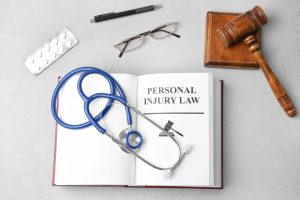 One of the most overlooked aspects of how a serious accident can impact someone’s life is the mental health effects of the accident. While your physical injuries after an accident may heal after a few weeks or months, you may experience nightmares, anxiety, depression, flashbacks, and other symptoms of post-traumatic stress disorder (PTSD) for years after your injuries have healed. These symptoms can have a significant effect on your quality of life, and you have the right to pursue compensation for how an accident impacts your mental health if the accident was caused by someone else.
One of the most overlooked aspects of how a serious accident can impact someone’s life is the mental health effects of the accident. While your physical injuries after an accident may heal after a few weeks or months, you may experience nightmares, anxiety, depression, flashbacks, and other symptoms of post-traumatic stress disorder (PTSD) for years after your injuries have healed. These symptoms can have a significant effect on your quality of life, and you have the right to pursue compensation for how an accident impacts your mental health if the accident was caused by someone else.
The Augusta, GA, personal injury lawyers of Chris Hudson Law Group have seen how PTSD can impact accident victims’ lives, and we want to help with your case. Proving that an accident caused your PTSD can be a challenge, but it is not impossible. Keep reading to learn more about what you may need for your case.
What Is Post-Traumatic Stress Disorder (PTSD)?
According to the American Psychiatric Association, post-traumatic stress disorder is a mental health condition that occurs in those who have witnessed or experienced a traumatic event. A person may develop PTSD after a car crash or similar accident, as well after a traumatic event like a natural disaster, terrorist attack, being involved in combat, a sexual assault, or otherwise physically attacked. While someone may develop PTSD after being exposed to a traumatic event, that exposure does not have to be direct. For example, some police officers develop PTSD after repeatedly working on violent, disturbing cases, even if they are not exposed to any direct trauma themselves.
Symptoms of PTSD
 The American Psychiatric Association says PTSD symptoms fall into four general categories, which are:
The American Psychiatric Association says PTSD symptoms fall into four general categories, which are:
- Intrusion – PTSD causes many victims to experience unpleasant, involuntary thoughts, feelings, or memories that disrupt their daily lives. These symptoms include things like flashbacks (which may be so vivid that victims feel like they are reliving the traumatic event), nightmares, and repetitive thoughts or emotions.
- Avoidance – Patients with PTSD often try to avoid things that may remind them of the traumatic event, including people, certain places or activities, and even particular objects in some cases. By avoiding these triggers, PTSD patients hope that the unpleasant feelings or thoughts they are having will go away (which rarely happens without treatment).
- Changes in mood and thought patterns – PTSD can cause massive changes in how someone thinks and the emotions they feel. They may repress key details of the traumatic event, they often blame themselves or others for what happened, and they may feel ongoing guilt, shame, fear, or anger. Many PTSD patients also have trouble taking part in activities they used to enjoy and become detached from friends and family.
- Changes in how the person reacts to the world around them – PTSD often causes patients to react strongly to situations or events that would normally not bother them very much. They may become irritable or easily angered, or they may start acting recklessly. Some PTSD patients also become paranoid or suspicious of others.
Proving That an Accident Caused PTSD
Because PTSD is a mental health condition and not a physical injury, showing how an accident led to your illness can be difficult. Some of the evidence that can help prove your case includes:
- Medical records – If you have developed PTSD after an accident, your doctor or mental health professional will likely have a record of the diagnosis in your medical records. You can use these records to help bolster your case.
- A diary or journal – Keeping a record of your PTSD symptoms and how they have affected your life over the long term can help prove a link between an accident and your mental health condition.
- Expert testimony – Many people still do not fully grasp what PTSD is and how it can affect the lives of accident victims. Mental health experts and other medical professionals can testify on your behalf to show how an accident led to your condition.
How a Lawyer Can Help if You Have PTSD After an Accident
Mental health conditions like PTSD can be just as harmful as any physical injury, if not more so in some instances. You have the right to seek compensation for the mental health effects of an accident, and a personal injury attorney may be able to help your case by:
- Gathering your medical records and other evidence to submit as part of an insurance claim or lawsuit
- Finding mental health professionals and other experts who can testify on your behalf
- Taking your case to court if an insurance company refuses to acknowledge how an accident has impacted your mental health
If you have developed PTSD after being involved in an accident in Georgia, the team at Chris Hudson Law Group wants to help.
Call (706) 863-6600 today or visit our contact page for a free case review.
